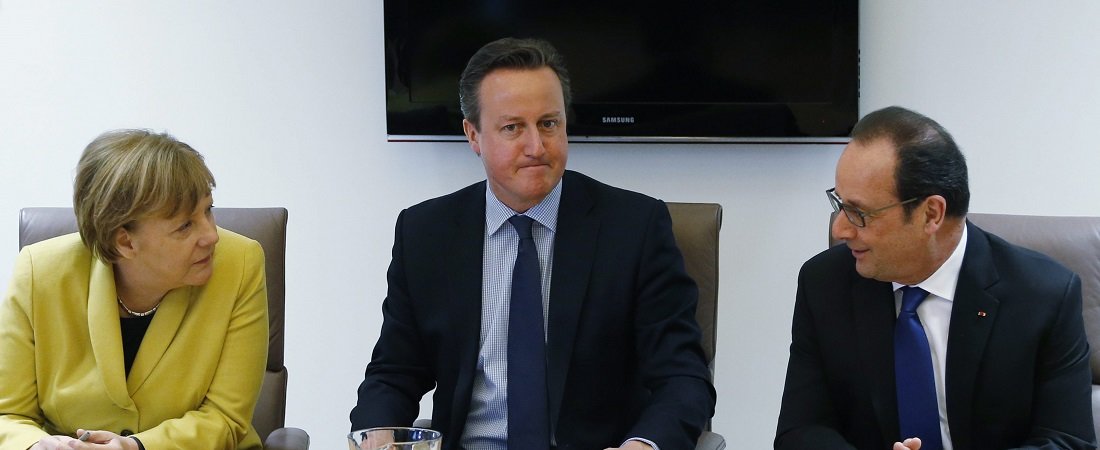“If the British people vote to leave, there is only one way to bring this about, namely to trigger Article 50 of the Treaties and begin the process of exit, and the British people would rightly expect that to start straightaway”.
So said David Cameron in Parliament on 22 February. He will still be Prime Minister when he attends a European Summit in Brussels, starting on 28 June, and the other EU Governments will press him to state the Government’s intentions. There is no precise guidance, legal or otherwise, since Article 50 has never been triggered before. But, the referendum result alone does not trigger it. The British Government have to start the process.
Michael Gove has said that “Article 50 is just one means of leaving the EU…We are in control of the process. We can proceed at our own pace and in our own time. No responsible Government would start that two-year process before making full preparations, including extensive parliamentary discussion”.
In fact, Article 50 is the only existing legal framework for leaving the EU and no responsible Government would act unilaterally or illegally and thus radically sour the already tense negotiating atmosphere. I expect the other Governments to await the formation of a new Government in London, but not much beyond.
The Article 50 negotiations will be about the withdrawal of the UK from the EU, i.e. how to dismantle the common policies, rights and obligations of membership, for example:
- The right to live, work and own property in all 28 EU countries;
- The ability to retire to another EU country;
- The right to receive health care that is free at the point of use.
Negotiations on the future economic relations between Britain and the EU will need to be part of a separate and parallel negotiation. In both cases, the 27 other EU Governments will determine on their own a mandate for the European Commission to negotiate with the British Government on their behalf. Britain will, until formal withdrawal, remain a member of the Council of Ministers, so will be able to raise issues of concern, but British Ministers have no vote at any stage of the negotiation.
At the end of the two year negotiating period allowed for under the EU Treaties, the 27 EU Governments (i.e. not the UK) vote on the outcome, unless they have all agreed (unanimously) to grant an extension. Since each of the 27 Governments has a veto on an extension, we should expect this to be the point at which individual Governments seek to extract the maximum concessions from the UK.
The vote on the outcome of the negotiations (be it an agreement or a failure to agree) will be taken by a majority vote of the 27, requiring the agreement of 20 out of the 27 Member States, representing 65% of the EU population. The European Parliament also have to agree the deal (or the absence of one) by a simple majority of its 751 MEPs. If an agreement with the UK goes beyond trade matters alone, it will require the unanimous agreement of the 27 and ratification in all of their countries, often through approval in national Parliaments or, in the case of Belgium, all seven of its Parliamentary Chambers.
In the meantime, the British Government will have to decide what parts of British law which are based on implementation of EU legislation should remain on the statute book after withdrawal and how, and to what extent, they will be replaced by new domestic law. EU Regulations (e.g. on the financial sector) which take direct effect in EU Member States will probably have to be replicated precisely if the UK wishes to keep the same level of access to the EU market. That of course will in turn depend on the nature of any agreement between the UK and the EU i.e. the UK will first have to negotiate the principle of continued access and then the terms on which it takes place.
The British Government will doubtless want to use the two year or more timeframe to start negotiating new bilateral trade agreements to replace the agreements the UK presently has through the EU. It remains to be seen whether that will be possible or whether other countries will wish to see what kind of trade deal the UK has with the EU before entering into negotiations.
In a series of articles published by Portland, Vote Leave campaigners Michael Gove and George Eustice clash with some of Britain’s most experienced diplomats on the question at the heart of Britahttps://portland-communications.com/publications/britain-votes-leave-what-happens-next/in’s EU referendum: what would happen if Britain votes for Brexit on 23rd June?
Click here to read the publications in full.

